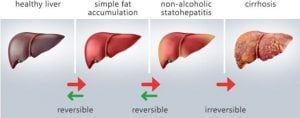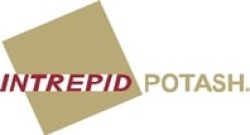[Editor’s note: This story was previously published in January 2019. It has since been updated and republished.]
Do you ever wish your dividend stocks paid out monthly rather than quarterly? For income-oriented investors who cover their monthly expenses with dividend income, it would certainly be a convenient option.
Such instruments actually do exist. In fact, they’re more common than many investors may realize. They’re also not crimped by catches and restrictions, and their underlying income is driven by very ordinary business models. They look just like their quarterly counterparts.
With that as the backdrop, here’s a rundown of 10 high-yield monthly dividend stocks from a variety of industries and sectors. Some are more familiar names than others, and some are bigger than others. Not all of them have been around for a great length of time either.
In all 10 cases, however, there’s an attractive monthly payout in store for the foreseeable future. In no particular order…
Compare Brokers


Source: Shutterstock
Capitala Finance (CPTA)
Dividend Yield: 13%
Capitala Finance (NASDAQ:CPTA) primarily provides capital to smaller companies, via a combination of loans and equity investments. Its average funding ranges between $10 million and $50 million, offering investors a chance to plug into small company opportunities that wouldn’t otherwise be available
Capitala’s strength is its diversity. It owns stakes in companies from the retailing, biotech, industrial, technology and consumer industries just to name a few. Its most recent investment was a piece of a human anatomy app company called Visible Body, which helps medical students and caregivers better understand how the human body physically fits together.
More than that, Capitala Finance is yielding a hefty 13% right now.
Compare Brokers


Source: Shutterstock
Stellus Capital Investment (SCM)
Dividend Yield: 9.36%
Also add Stellus Capital Investment (NYSE:SCM) to your list of monthly dividend stocks to scoop up if you’re looking for regular monthly income.
Like Capitala Finance, Stellus is categorized as a business development company. And also like Capitala, Stellus is focused on so-called “middle market” outfits that may be too big or too risky for traditional loans but too small to raise funds by going public. Its portfolio includes food distributor GoodSource Solutions, home-health product provider Compass Health and business software outfit Valued Relationships Inc, just to name a few.
It’s arguably a little less risky than Capitala, in that most of its investment are in companies currently yielding a (very) positive EBITDA. The trade-off is a lower dividend yield of 9.36%.
Compare Brokers


Source: Shutterstock
AGNC Investment (AGNC)
Dividend Yield: 12.24%
AGNC Investment (NASDAQ:AGNC) is a real estate investment trust, or REIT, primarily focused on the development of a mortgage portfolio. The bulk of the mortgages it owns are made by government-sponsored outfits like Fannie Mae and Freddie Mac. It’s a lower-risk approach toward driving monthly income, though still an effective one.
AGNC presently yields 12.24% thanks to the stock’s 7% slide since August of last year.
That pullback was largely rooted in fears that rising interest rates would crimp AGNC Investment’s future cash flows, as higher interest rates are presumed to tend to crimp overall lending activity.That’s only partly accurate. Higher rates can do mortgage REITs more good than harm if the underlying reason for rising rates is a strong economy.
Compare Brokers


Source: Shutterstock
Whitestone REIT (WSR)
Dividend Yield: 9.65%
REITs, by the way, are pools of money that allow individuals liquid access to real estate investments that wouldn’t otherwise be available to most retail investors. And a portfolio of mortgages is hardly the only way to develop a REIT.
Case in point: Whitestone REIT (NYSE:WSR). Whitestone owns a portfolio of consumer-oriented real estate, primarily in more affluent neighborhoods, providing space to “ecommerce-resistant” companies like Whole Foods Market, Verizon (wireless phone service) and True Food Kitchen restaurants. It’s a brilliant strategy, as more than six straight years of uninterrupted quarterly year-over-year revenue growth verifies.
Whitestone’s trailing yield is 9.65%, which isn’t the highest among the monthly dividend stocks in focus, though it’s a solid return relative to the risk shareholders are assuming.
Compare Brokers


Source: ReynerMedia via Flickr (Modified)
Prospect Capital (PSEC)
Dividend Yield: 11.02%
It’s not the biggest business development company in the world, but somehow Prospect Capital (NASDAQ:PSEC) is still one of the best known. Its portfolio includes several familiar names like JD Power, Capstone Logistics, ACE Cash Express and video media company Cinedigm, just to name a few.
It’s diversity that has helped smooth out the BDC’s bottom line from time to time when it might otherwise be erratic.
Either way, the market and analysts may be underestimating the true potential of Prospect. The company has met or topped earnings estimates in each of its past five quarters. Between that and its trailing dividend yield of 11.02%, PSEC may be a smart risk to take.
Compare Brokers


Source: ©iStock.com/ndoeljindoel
Solar Senior Capital (SUNS)
Dividend Yield: 8.37%
Don’t let the name fool you. Solar Senior Capital (NASDAQ:SUNS) doesn’t specialize in providing capital to the solar power industry. It is another business development company, and like Prospect and Capitala, it’s highly diversified in terms of industry exposure.
There is a noteworthy difference between Solar Senior Capital and its BDC peers, however. The organization focuses primarily on senior secured loans of privately owned middle-market companies, which better positions it to, if nothing else, preserve capital.
The trade-off for safety is yield. Solar Senior is only paying out 8.63% of the stock’s current price as an annualized dividend. And it’s been paying it, and adding to it, faithfully since 2011.
Compare Brokers


Source: Shutterstock
Gladstone Investment (GAIN)
Dividend Yield: 7.16%
Gladstone Investment (NASDAQ:GAIN) is a business development company, but unlike most other BDCs (and unlike any other monthly dividend stocks being discussed within this list). Whereas most of these investment companies seek to make loans, Gladstone is ultimately aiming to acquire smaller but mature companies.
It’s a riskier proposition, as investors have learned the hard way. The company missed its quarterly earnings estimate at the end of 2018 and shareholders have paid the price. GAIN had lost about 12.4% of its value last year but since has recovered and even met its most recent earnings estimate.
There’s just something compelling about the growth potential in ownership rather than merely lending.
Compare Brokers


Cross Timbers Royalty Trust (CRT)
Dividend Yield: 4.55%
They’re a relatively rare breed these days, but oil and gas royalty investments are still around and still dishing out dividend income. Cross Timbers Royalty Trust (NYSE:CRT) is one of the remaining names of the ilk, yielding 4.55%.
An investment in Cross Timbers is predominantly an investment in oil and gas producing properties found in Texas, Oklahoma and New Mexico. Yes, the fluctuating price of oil and natural gas can impact the trust’s bottom line, although not as much as you might think.
The organization is merely plugged into the production of established and operational wells, and isn’t directly taking on the expensive risk of exploration.
Compare Brokers


Global Net Lease (GNL)
Dividend Yield: 11.77%
Global Net Lease (NYSE:GNL) is another REIT, primarily serving the commercial market. It owns properties in the United States and Europe, and rents to quality tenants like FedEx, Family Dollar and ING Bank, organizations that can not only reliably pay their rent as it comes due, but outfits that tend to stay put once they establish roots.
There’s a bit of a twist Global Net Lease brings to the table that allows it to juice its payout to its current yield of 11.77%, however. It also acquires much of its rental real estate through an arrangement called a sale-leaseback.
In simplest terms, a sale-leaseback lets a property-owning company free up the value of real estate by selling a space it owns to a landlord like Global Net Lease, and then remain in that space as a tenant. It’s a win-win scenario, as the renter enjoys a big cash infusion and Global Net Lease has a tenant already lined up.
Compare Brokers


Source: Shutterstock
Horizon Technology Finance (HRZN)
Dividend Yield: 9.28%
Finally, Horizon Technology Finance (NASDAQ:HRZN) has earned a spot on a list of monthly dividend stocks to mull. As the name suggests, Horizon Technology Finance provides capital to young, upcoming technology outfits, though it doesn’t cater strictly to the tech sector.
It’s also heavily involved in the development of life science and biotechnology companies. Its portfolio includes biotech names like AccuVein and Celsion, along with traditional tech plays like cybersecurity company Control Scan and communications technology player Xtera.
Its results are as erratic as what you’d expect from major technology names, but it’s worth the wild ride. Horizon’s yielding 9.28% at its current price, and it has not had any sustained trouble affording its dividend payment.
As of this writing, James Brumley did not hold a position in any of the aforementioned securities. You can follow him on Twitter

 Source: Shutterstock
Source: Shutterstock  Source: Citrix Online via Flickr
Source: Citrix Online via Flickr  Source: Shutterstock
Source: Shutterstock  Intercept Pharmaceuticals (NASDAQ:ICPT) is a biopharmaceutical company that focuses on non-viral liver diseases. It currently has Ocaliva on the market which is treats a handful of these diseases and has little competition in the space.
Intercept Pharmaceuticals (NASDAQ:ICPT) is a biopharmaceutical company that focuses on non-viral liver diseases. It currently has Ocaliva on the market which is treats a handful of these diseases and has little competition in the space. Source: Shutterstock
Source: Shutterstock  Source: Shutterstock
Source: Shutterstock  Source: Shutterstock
Source: Shutterstock 
 Dropbox Inc. provides a collaboration platform worldwide. Its platform allows individuals, teams, and organizations to create, access, and share content online. The company was formerly known as Evenflow, Inc. and changed its name to Dropbox, Inc. in October 2009. Dropbox Inc. has strategic partnership with Zoom Video Communications, Inc. Dropbox Inc. was founded in 2007 and is headquartered in San Francisco, California.
Dropbox Inc. provides a collaboration platform worldwide. Its platform allows individuals, teams, and organizations to create, access, and share content online. The company was formerly known as Evenflow, Inc. and changed its name to Dropbox, Inc. in October 2009. Dropbox Inc. has strategic partnership with Zoom Video Communications, Inc. Dropbox Inc. was founded in 2007 and is headquartered in San Francisco, California.
 Royce & Associates LP lifted its position in Intrepid Potash, Inc. (NYSE:IPI) by 17.2% in the 4th quarter, according to its most recent Form 13F filing with the Securities and Exchange Commission. The institutional investor owned 2,336,106 shares of the basic materials company’s stock after buying an additional 342,151 shares during the quarter. Royce & Associates LP’s holdings in Intrepid Potash were worth $6,074,000 as of its most recent SEC filing.
Royce & Associates LP lifted its position in Intrepid Potash, Inc. (NYSE:IPI) by 17.2% in the 4th quarter, according to its most recent Form 13F filing with the Securities and Exchange Commission. The institutional investor owned 2,336,106 shares of the basic materials company’s stock after buying an additional 342,151 shares during the quarter. Royce & Associates LP’s holdings in Intrepid Potash were worth $6,074,000 as of its most recent SEC filing.  Source: Shutterstock
Source: Shutterstock  Source: Shutterstock
Source: Shutterstock  Source: Shutterstock
Source: Shutterstock  Source: Shutterstock
Source: Shutterstock  Source: ReynerMedia via Flickr (Modified)
Source: ReynerMedia via Flickr (Modified)  Source: ©iStock.com/ndoeljindoel
Source: ©iStock.com/ndoeljindoel  Source: Shutterstock
Source: Shutterstock 

 Source: Shutterstock
Source: Shutterstock  Brendan McDermid | Reuters Traders work on the floor of the New York Stock Exchange.
Brendan McDermid | Reuters Traders work on the floor of the New York Stock Exchange.  Scott Mlyn | CNBC Gary Philbin, CEO, Dollar Tree
Scott Mlyn | CNBC Gary Philbin, CEO, Dollar Tree  Daniel Acker | Bloomberg | Getty Images
Daniel Acker | Bloomberg | Getty Images  Scott Mlyn | CNBC A shopper approaches the Target store in Mount Kisco, New York.
Scott Mlyn | CNBC A shopper approaches the Target store in Mount Kisco, New York.